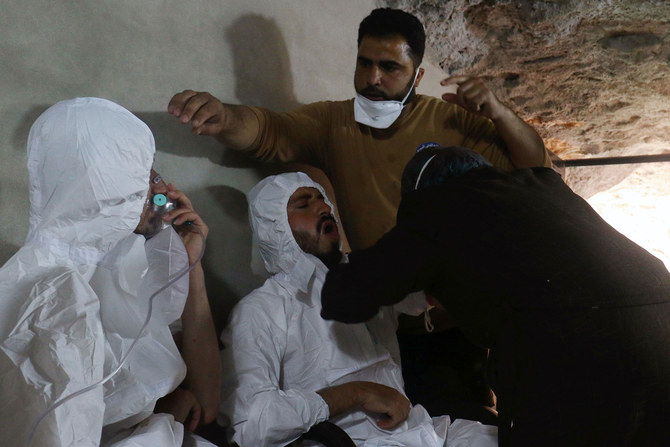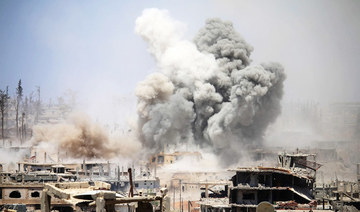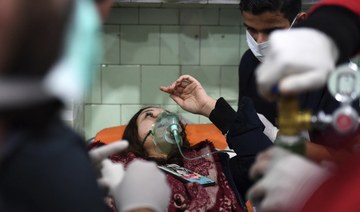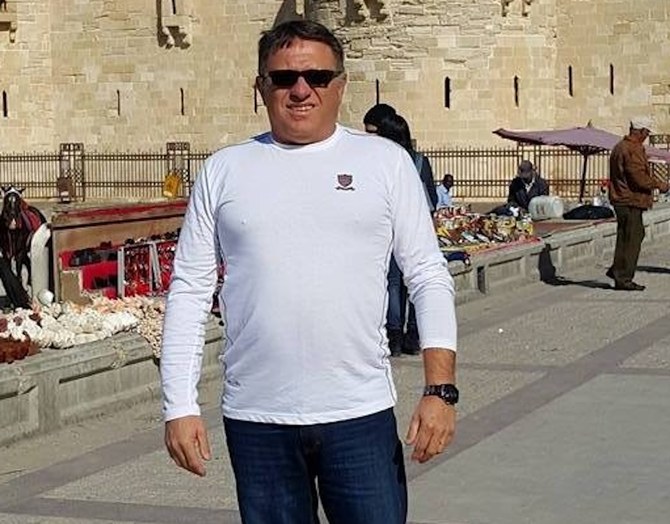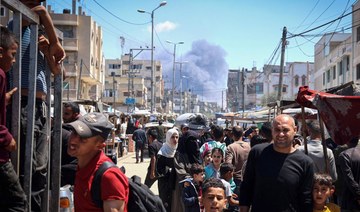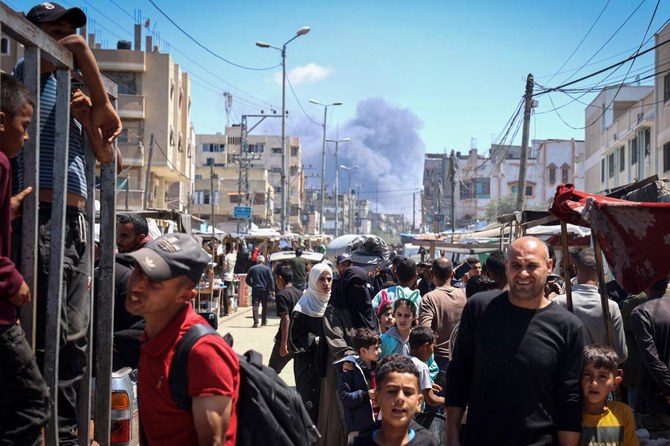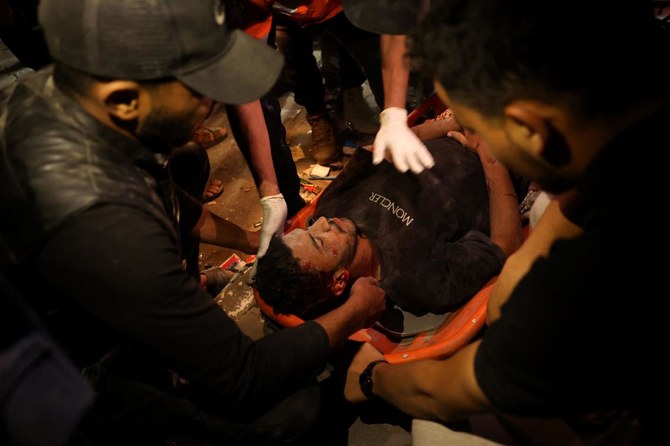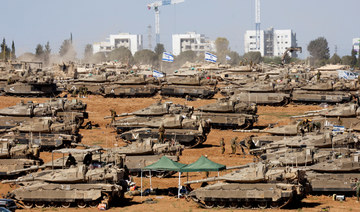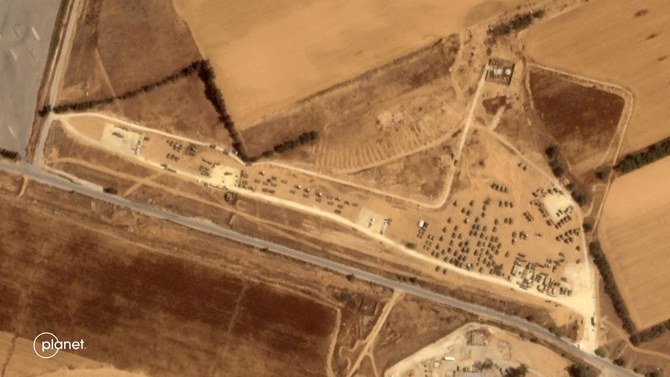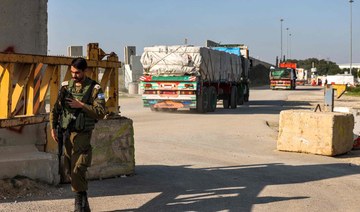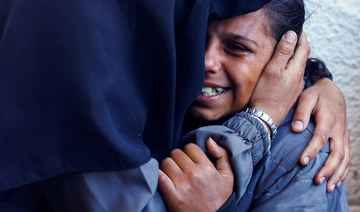NEW YORK: “Gaps, inconsistencies and discrepancies” mean that the Syrian regime’s declaration of its chemical weapons program remains inaccurate and incomplete, according to the UN’s disarmament chief.
Izumi Nakamitsu, under-secretary-general and high representative for disarmament affairs, once again urged the Syrian government to “cooperate fully” with the Organization for the Prohibition of Chemical Weapons and grant its representatives “unfettered and immediate” access.
Her comments came as she briefed the Security Council, during its first session of the year, on the implementation of Resolution 2118, which was unanimously adopted in September 2013 after a UN investigation confirmed the use of chemical weapons against civilians in a Damascus suburb the previous month. Images of people, including children, suffocating after breathing in a nerve agent caused outrage worldwide.
The resolution ordered the Syrian regime to destroy its chemical weapons by mid-2014, and warned that punitive action would be taken in the event of non-compliance. It banned the regime from using, developing, producing, acquiring, stockpiling or retaining chemical weapons, or transferring them to other states or non-state actors.
In October 2013, Syria submitted to the OPCW a formal initial declaration about its chemical weapons program, including a plan for the destruction of stockpiles.
More than eight years later, Nakamitsu told the Security Council, the declaration “cannot be considered accurate and complete in accordance with the Chemical Weapons Convention.”
While “some progress” has been made, resulting in the closure of three issues relating to the initial declaration, she said that 20 out of 24 outstanding issues remain unresolved as investigations continue into allegations of the use of chemical weapons in a variety of incidents.
One of those outstanding issues concerns a facility that Syrian authorities said has not been used to produce chemical weapons. Information and evidence gathered by the OPCW since 2014 indicates, however, that the production or weaponization of chemical warfare nerve agents did indeed take place there, Nakamitsu added.
“The substance of these outstanding issues is of concern and involves, (among other things), undeclared research, production and/or weaponization of unknown quantities of chemical weapons, and significant quantities of chemical warfare agents or precursors and chemical munitions whose fate has not yet been fully verified by the OPCW Secretariat,” she said.
She also expressed regret that Syrian officials refused to grant an entry visa to one member of OPCW team, which has delayed its deployment to Damascus for a 25th round of consultations. Efforts to convene in The Hague were also unsuccessful.
As she presented the 99th report about the Syrian regime’s chemical weapons, Nakamitsu again expressed hope that Security Council members would stand united on the issue.
Linda Thomas-Greenfield, the US ambassador to the UN, said that “it is a matter of international peace and security that Damascus fulfill its international obligations. It is time for the Syrian regime to quit stalling, cease its obstructionism, and comply with its international obligations.”
Dmitry Polyanskiy, Russia’s deputy permanent representative to the UN, welcomed the new members of the Security Council — the UAE, Gabon, Ghana, Brazil and Albania — that began their two-year terms on Jan. 1. He told them that on their first day at the council, they had an opportunity to plunge into one of the most controversial and politicized topics on its agenda and alleged that it is rife with forgery, biased and faulty methods of investigation, and manipulations.
“It is unique,” he added, “because no other episode is so detached from reality and resembles a fairy tale as much as this file.” Polyanskiy said that the Syrian government has “faithfully complied with all its relevant obligations” regarding its chemical file, and that the Security Council has received “no science-based proofs to the opposite.” Syria remains ready to host the technical team, he added.
The Russian envoy also warned fellow members that by “overemphasizing” alleged violations by the Syrian regime, the UN and OPCW “basically soft-pedal the episodes of terrorists using chemical weapons in Syria and its neighbor states.”
He concluded: “The so-called Syrian chemical file has ceased to maintain a facade of objective and unbiased fact-finding that could confirm the assertions about (chemical weapons) usage in that country.
“Now it is but a lever of anti-Syrian criticism for our Western colleagues, who are ready to do everything to prove the unprovable, even though in such case they would have to neglect the laws of physics, chemistry and elementary logic.”



